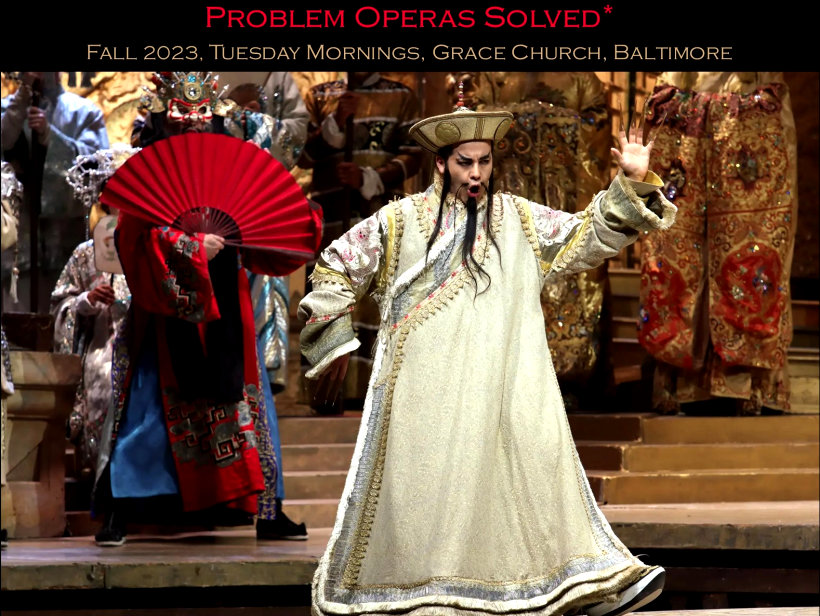| Handout (flat) Handout (folded) Synopsis (Met) Class Script | Return to Index |
The production from St. Petersburg that we sampled in class is available on YouTube complete, and in good quality; it
is a pity it is not a more engaging interpretation, but it is the best available with English titles. The Munich
production is also available complete (for now) in a German television broadcast including interesting intermission
features, but these are in German, and there are no titles. I do, however, have three good clips from this production,
one of which does have titles, and also a review in English which will give you a far better account of it than I could.
I would also draw your attention to the trailers of three other modern productions that I threw in at the end; no
matter what language they are in, the combination of music and stage action in each is gripping; I have listed them in
order of increasing radicality. rb.
| PRODUCTIONS SEEN IN CLASS | |||
| St. Petersburg 1998 |
Acts 1 and 2
(complete, with titles) Acts 3 and 4 (complete, with titles) |
||
| Munich 2016 |
Complete
(German tv broadcast, no titles) Trailer Act 1 love duet (Anja Harteros, Jonas Kaufmann) Act 4 Carlo/Alvaro duet (Ludovic Tézier, Jonas Kaufmann, w/titles) Act 4 aria, "Pace, pace, mio Dio" (Anja Harteros) Operawire review (well worth reading!) |
||
| OTHER PRODUCTIONS | |||
| Christof Loy, Amsterdam |
Trailer Excerpt, "La vergine degl'Angeli" (Eva-Maria Westbroek) |
||
| Andreas Homoki, Zurich |
Trailer English-language news clip |
||
| Tobias Kratzer, Frankfurt | Trailer with interviews | ||















